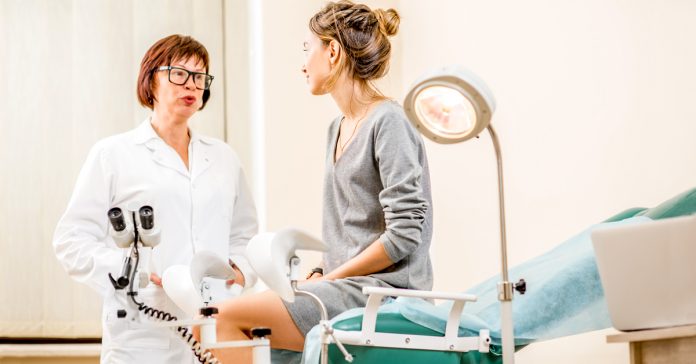Most of the people with HPV even do not know they are bearing the virus. More than 40 types of HPV are directly responsible for the male and female genital warts. Some HPV are directly responsible for cancer, others may cause genital warts.
However, most of the cases (more or less 90% of cases), the infections clear up naturally over the time. I hope, this article will help you to know more about human papillomavirus infection (HPV), its causes, prevention, symptoms, and treatment. So, keep reading!
What causes HPV
The main cause of HPV is the direct sexual contact like oral sex. The skin-to-skin contact transmits the HPV easily from one person to another person.
But intercourse isn’t the primary requirement to infect the human papillomavirus infection. However, in rare cases, an infected mother can transmit HPV to her baby during delivery.
Moreover, walking in barefoot in public places such as the gym or pool can be a risk for infection with the types of HPV that cause plantar warts.
The HPV infections are very much contagious and generally contracted through sexual activity with an infected person.
It may include kissing or touching the skin of the infected areas such as vagina, scrotum, vulva, and anus. Sexual intercourse can also transmit the HPV from one person to another.
In addition, the HPV is more likely to be transmitted when lesions or warts are visible but it can also be transmitted even without the presence of visible warts.
Human papillomavirus infection pictures
Related: Coronavirus and pregnancy: What you need to know
What does HPV look like when it first starts?
The HPV comes in various sizes and shapes. When it first starts, normally it appears in small bumps (up to 2-3cm for) that are skin-colored. And often it grows in clusters that look like a sort of cauliflower shape. They are usually soft-to-the-touch and can be either raised or flat.
What does HPV look like on a man?
In men, HPV appears on the penis and scrotum or around the anus.Warts might be small or large, raised or flat, or shaped like a cauliflower.
What does HPV look like on a woman?
Genital warts appear mostly on the vulva on a woman. But it can also appear near the anus, on the cervix or in the vagina.
Human papillomavirus infection symptoms
The most human papillomavirus infection goes unnoticed because they don’t cause any symptoms. According to the Centers for Disease Control and Prevention (CDC), in the USA, warts related to the most HPV infections go away on their own without any signs or symptoms.
However, you may contact with the virus years ago and it can remain in the body for weeks, years, or even a lifetime without showing any symptoms of an infection.
Here are some human papillomavirus symptoms, but the type of HPV symptoms depends on the type of HPV infection. So, let’s know the human papillomavirus symptoms
Common warts: These warts are painless and firm growths with a rough surface. Generally, these appear on the face, knees, fingers, and around the nails.
Plantar warts: These types of warts are appeared on the soles of the feet and can be painful because of their weight-bearing location on the feet.
Flat warts: They are small and smooth warts. You will find these types of warts in clusters on the back of your hands, legs even on your face.
Precancerous lesions or cervical dysplasia: The abnormal cells in the cervix are called cervical dysplasia. They are painless. and you can detect this only with a Pap smear.
Filiform warts: The shapes of these warts are long. They are found around the neck, face, and eyes.
Genital warts: These are small, cauliflower-shaped, or flat lesions. Generally, these types of warts occur on the genital areas. Moreover, your vagina, vulva, cervix, scrotum, penis, or anus may also be affected with these warts. However, Genital warts are painless, but they can bleed, itch, or have some discharge sometimes.
Read more: Doctor Note: Pregnancy and coronavirus
HPV symptoms in mouth
Oral HPV often has no symptoms. It means that people could not realize they’re suffering from human papillomavirus infection. So, they couldn’t take the necessary steps to limit the spread of the disease as well.
Warts may be developed in the mouth or throat in certain cases. But it’s not so familiar. However, you can experience the below symptoms of HPV:
• White or transparent coating in the inner lining of cheeks
cannot be seen in some lights, associated with itching and irritation
• Feelings like there is an extra layer of tissue in mouth
• Numbness underneath the tongue associated with discoloration of the tissue
that is white and yellow
• The tongue is sensitive to everything, especially to spicy and salty foods.
• During eating my tongue is tingling and sometimes numb feeling.
• constant earaches
• growths or lumps on the neck
• coughing up blood
• constant sore throats
• unexplained weight loss
• enlarged lymph nodes
• trouble swallowing
• lumps on the cheeks
• hoarseness
If you observe any of these symptoms and you know or think you may have HPV,
consult with your doctor immediately.
HPV test for women
When a doctor is going to make an HPV test for women he will make a diagnosis of the skin or genital warts based on a physical examination. Moreover, your doctor may make a biopsy to diagnose genital warts and eliminate other skin conditions properly.
Apart from this, your doctor will perform a Pap (The Papanicolaou test) test to diagnose and test for precancerous lesions in women.
In earlier, its name was Pap smear, cervical smear, or smear test. It is a cervical screening method. You can use it to detect potentially pre-cancerous and cancerous processes in the cervix. The test can detect abnormal lesions in the cervix.
So, to get regular Pap test is important for women, even if they have had the HPV vaccine. Moreover, your doctor may have an HPV DNA test. The results of HPV DNA test and Pap test indicates a women’s cervical cancer risk.
However, women have their first Pap test, or Pap smear, at the
age of 21 regardless of onset of sexual activity.
The women of 21 to 29 years of ages should have just a Pap test every three
years.
The Regular Pap tests help to recognize abnormal cells in women. These can indicate cervical cancer or other HPV-related problems too.
The Women of ages 30 to 65 years should screen with Pap and HPV tests at the same time every five years. If you’re under 30 years of age and your Pap smear results are abnormal, your doctor may also request for an HPV test.
However, if you have new warts or see other changes after your sexual activities, contact immediately your doctor for an assessment.
Human papillomavirus treatment
In fact, there is no specific treatment for HPV that can clear HPV infection forever. In most cases, the immune system itself removes the HPV infections from the body without any treatment.
However, there are some treatments available for the HPV cancers and warts:
The infected women can remove the skin warts using
over-the-counter treatments. Your doctor can use salicylic acid to remove the
layers of infected skin.
In addition, your doctor may use cryotherapy (liquid nitrogen) to freeze off
the wart.
On the other hand, you can use medications for the treatment of genital warts. You can use the medicines like imiquimod, podophyllotoxin, podophyllum, and trichloroacetic acid for it.
You can also remove warts by physically through cryotherapy, electrosurgical removal, laser therapy, or surgical removal.
Moreover, you can remove the abnormal cells in cervical dysplasia by freezing or laser surgery. But it depends on the circumstances and the time of a diagnosis.
How to prevent HPV
The HPV infections occur most commonly through vaginal or anal sex. But any genital contact can transmit the HPV from one person to another. However, the following are ways to prevent HPV:
• If you want to prevent HPV, the easiest ways are to use
condoms during intercourse.
• Limit the number of your sexual partners.
• Choose your sex partners carefully
Human papillomavirus vaccine
The human papillomavirus vaccine is available for female. The vaccine Gardasil can prevent 4 types of HPV infections. It can also prevent the infections that cause most cervical cancers.
However, the vaccine is for the following groups only:
• The Girls of 11-12 years of age who have no previous experience of HPV.
• Girls and women of 13-26 years of age who never take vaccine along with not
completed the vaccine series.
Cautions:
• The HPV is no curable forever.
• The pregnant women are not eligible for the human papillomavirus
vaccine
• It does not provide protection against all types of HPV.
HPV risk factors
Most of the HPV infections go away on their own without any signs or symptoms. It doesn’t mean the virus has gone forever. It is still in an infected person’s body. And he is unknowingly passing HPV to his sexual partners.
If the virus stays in a person’s body, it can cause serious health problems in future like genital warts and warts in the throat.
Moreover, human papillomavirus infection (HPV) can also cause cervical cancer along with other cancers of the throat, genitals, head, and neck.
In a nutshell, human papillomavirus infection (HPV) is a very common sexually transmitted infection though most of the time it is not so harmful. But you have to keep your sex life safe and clean.
Thanks for reading!
Disclaimer: Please consult your doctor for professional health advice. The content is not intended to be a substitute for professional medical advice, diagnosis, or treatment. Above mentioned information and recommendations are just general and you can use it according to your personal health indicators and status









